Fishing bans will be implemented in key waters of the Yangtze River basin in stages: responsible for history, future and future generations.
CCTV News:The Yangtze River is the mother river of the Chinese nation. Four years ago, General Secretary of the Supreme Leader pointed out at the symposium on promoting the development of the Yangtze River Economic Belt held in Chongqing that the Yangtze River has a unique ecosystem and is an important ecological treasure house in China. At present and for a long time to come, it is necessary to put the restoration of the ecological environment of the Yangtze River in an overwhelming position, work together for great protection and not engage in great development. How has the Yangtze River been managed since the Yangtze River Economic Belt was comprehensively promoted four years ago? How can we call back green mountains and green waters? Maanshan City, Anhui Province, was once a big polluter. What is the situation there now?
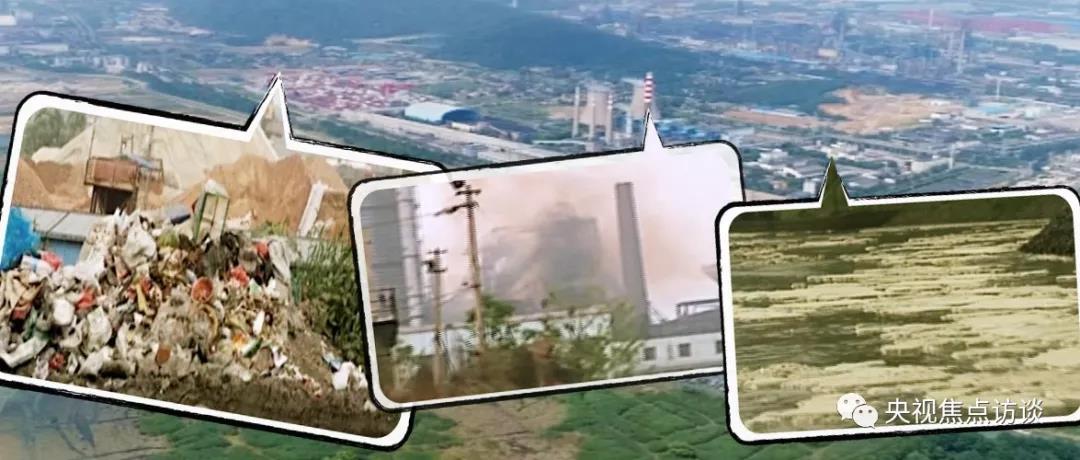
In 2019, the Ministry of Ecology and Environment and Taiwan formed a joint investigation team to conduct unannounced visits to 11 provinces (cities) along the Yangtze River Economic Belt in eight months. The investigation found that the Yangtze River still faces three main problems: the total amount of pollution discharge is huge, the ecological damage is serious, and the risk of environmental pollution is still great.
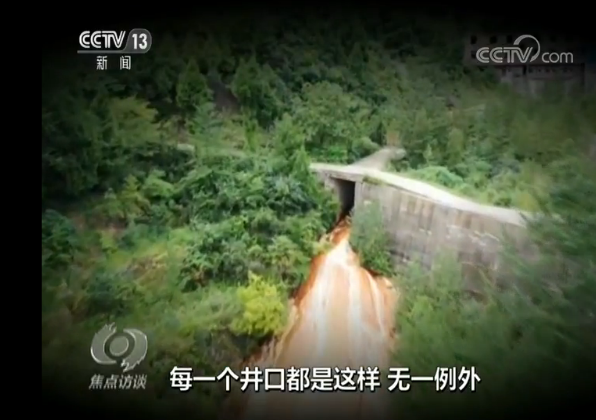
According to statistics, the total amount of wastewater received by the Yangtze River basin accounts for about one-third of the whole country every year, and the pollutant discharge per unit area is about twice the national average. The biological integrity index has reached the worst fish-free level; More than 400,000 chemical enterprises are densely distributed along the river, and a large number of solid wastes are piled up on the shore, which poses a greater risk of environmental pollution. In a word, the Yangtze River is still a river with high load, high pollution and high risk, and the environmental protection situation is still grim.
Xing Changcheng, deputy director of the Second Inspector Department of the Central Eco-environmental Protection Inspector Office, said: "In some localities and departments, the ideological understanding of protecting the Yangtze River and the great protection of the Yangtze River is still not in place, and the implementation of the new development concept is still not in place, especially in some places, the phenomenon of seeking temporary economic development at the expense of eco-environmental protection still exists, and many similar problems have been found during our inspection."
So how to deal with the relationship between economic development and environmental protection? Maanshan City, Anhui Province has made some explorations. Speaking of Ma ‘anshan, Maanshan and pollution may be the first thing that many people think of. In 1956, Ma ‘anshan was set up for steel, and changed from a small fishing village into a city of steel. Since then, it has been in the situation of "one steel dominates" and "one Mara city" for a long time. Later, many related industries were derived along the Yangtze River, which made Ma ‘anshan long-term "riverside not see the river, water is not hydrophilic".
Xuejiawa is a depression near the Yangtze River. Two years ago, it was devastated, and it was the most prominent and typical place for environmental protection in Maanshan.
At the end of 2017, Zhang Yuefeng, secretary of the municipal party committee, was interviewed by his superiors as soon as he took office because of pollution.
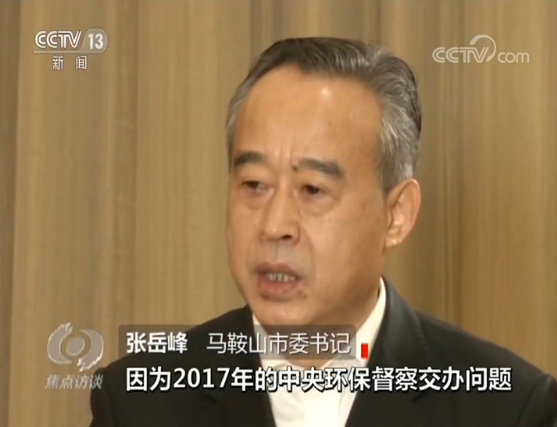
Although I have no bottom in my heart, I have no way out. In Zhang Yuefeng’s view, the key to whether this thing can be done is to make up your mind. To solve the environmental problems in Ma ‘anshan, we must not only use environmental protection means, but also adjust the economic structure, upgrade backward industries and treat them from the source. Xuejiawa was regarded as a breakthrough. The pollution sources in Maanshan can be roughly divided into water, shore and city. On the shore where the problem is most concentrated, there are 153 illegal docks, 684 scattered pollution enterprises, 62 solid waste dumps and 497 farms. This was a stumbling block that was placed in front of the local government two years ago and must be dismantled or shut down according to law, but the resistance is great. Wanjiang Cement Plant located in Xuejiawa wants to stay on the riverside by completing the formalities.
Zhang Yuefeng, secretary of Ma ‘anshan Municipal Party Committee, said: "I told him (the business owner) that it was impossible. I said that now not only I but also you must follow the general secretary’s requirements for the great protection of the Yangtze River. At that time, we said ‘ Four zeros ’ It is called zero tolerance in attitude, zero luck in thought, zero slack in action and zero tolerance in punishment. "
Although some enterprises can’t shut down, they can greatly reduce pollution through upgrading. The refractory factory under Masteel is near Xuejiawa, only 2 kilometers away from the Yangtze River. Although it has made great contributions to Masteel, it is also a highly polluting enterprise and needs rectification.
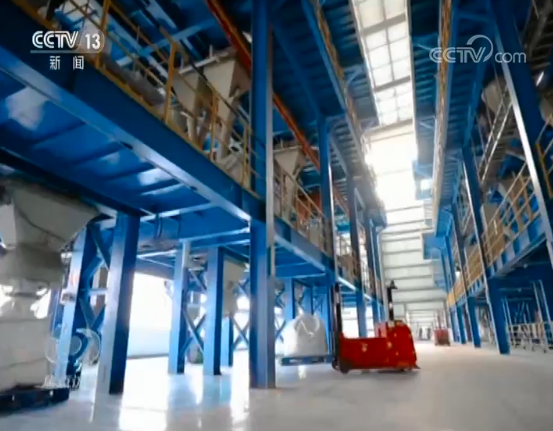
When Maanshan began to renovate along the Yangtze River, the refractory factory set up a new company with a listed company, invested 200 million yuan, moved into the industrial park, built new factories and used new equipment, and the pollution problem was completely solved.
Maanshan Iron & Steel Refractory Factory did not close down because of environmental improvement, but took the opportunity of Yangtze River improvement to upgrade. According to this idea, Maanshan will either completely shut down other polluting enterprises along the Yangtze River, upgrade or transform into other low-pollution industries.
In addition to polluting enterprises along the coast, water pollution sources are also one of the key points of remediation. Before the regulation, there were both past transport ships and more than 11,000 fishermen on the river. There were four or five hundred people and more than 200 boats in Xuejiawa alone. These fishermen have lived by fishing for generations, and as a result, they have almost no fish to catch because of pollution and overfishing. If we want to cure it, we must let these fishermen go ashore to retreat and change their production. But in the face of going ashore, the fishermen are on tenterhooks.
In view of the fishermen’s greatest concern, the Maanshan government has put forward a "four haves and one free ride" scheme with jobs, housing, schooling, social security and a good mood, so as to reassure the fishermen.
Due to proper measures, it only took more than two months, and Maanshan took the lead in completing the ban on fishing in the main stream and main tributaries of the Yangtze River and the fishermen’s retreat and conversion, one and a half years ahead of the national requirements. More than 5,100 fishing boats were dismantled and all 11,000 fishermen landed.

Besides water and coastline, the third pollution source is urban domestic sewage. In the past, due to the backward urban planning and weak environmental awareness, rainwater and sewage in many old communities were mixed and discharged, which led to the pollution of the Yangtze River. This is a long-standing problem that has accumulated for decades. To achieve a radical cure, it is necessary to transform the city’s pipe network, which is equivalent to a major operation for the city. There are many difficulties. First of all, money is a hard bone.
In order to solve the problems of capital, technology and management, Maanshan hired top domestic scientific research institutes to make plans, and also launched an "environmental butler" to seek breakthroughs by using third parties.
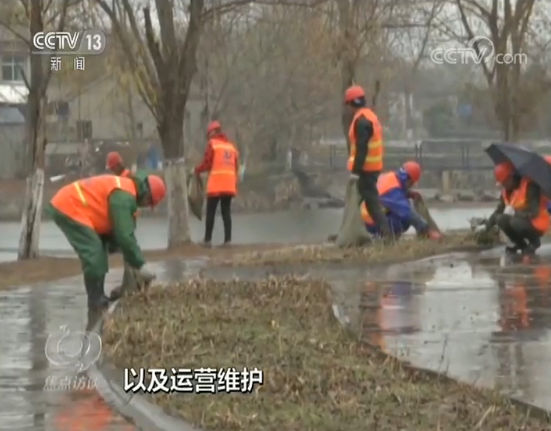
After finding a way, Maanshan began to treat the rain and sewage pipe network and the rivers in the city from the source.
After the rain and sewage are separated, the sewage is sent to the treatment plant for treatment, and the black and smelly sewage immediately turns into clear water and flows into the river. Therefore, the water quality of rivers in the city has improved significantly. Cihu River is the mother river of Maanshan. In the past, there were many black and odorous water bodies, but now it has changed a lot.
In this way, Maanshan solved the pollution problems on water, coastline and city. Only when the environment is well managed can we introduce low-pollution high-tech industries, thus solving the problems of environmental protection and development from a higher level of adjusting the economic structure. Ma ‘anshan Zhengpugang Modern Industrial Park is a new park to develop high-end industries. When the reporter met the director Wu Xiaodong, the person in charge of the park, he had just returned from Shenzhen with Zhang Yuefeng, secretary of the municipal party committee.

Wu Xiaodong, secretary and director of the Party Working Committee of Zhengpugang Modern Industrial Park in Maanshan, said: "All highly polluting enterprises will not enter, and all industries will be oriented, mainly high-end manufacturing, electronic information industry and green food, as well as port logistics relying on ports."
After years of construction, a number of advanced high-end manufacturing enterprises and research institutes have settled in the modern industrial park of Zhengpugang New District.
Environmental protection and economic development are no longer a pair of contradictions in Maanshan, but partners that promote each other. In the first three quarters of 2019, the city’s GDP reached more than 150 billion yuan, an increase of more than 20% over the same period in 2017. In 2018, Maanshan City was re-recognized as a national health city. Xuejiawa has become a good place for people to relax.
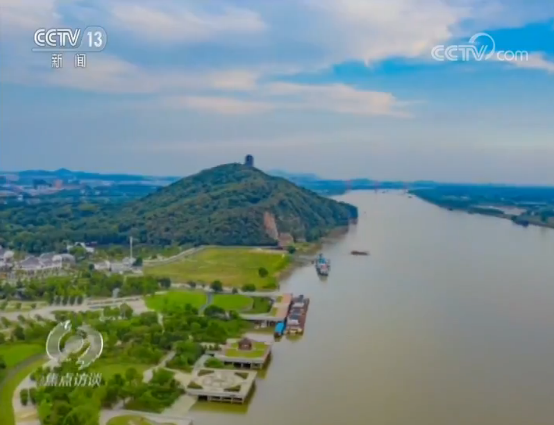
Xue Mingfei, deputy head of Yushan District, Maanshan City, Anhui Province, said: "There are more biodiversity than before, especially we can see finless porpoises here. In the past, we could not see finless porpoises on the river."
It is urgent to control pollution and restore ecology. In the process of promoting the development of the Yangtze River Economic Belt, what we want to "break" is not the environment, but the thinking and practice of barbaric and disorderly development, and what we want to "establish" is "ecological priority and green development". "Pollution before treatment" is not a law of development, but a lesson of blood. From January 1, 2020, the fishing ban will be implemented in key waters of the Yangtze River basin by classification and stages, and at the latest from 0: 00 on January 1, 2021, the fishing ban will be implemented for a tentative period of 10 years in the natural waters of the main stream and important tributaries of the Yangtze River except for aquatic nature reserves and aquatic germplasm conservation zone. This is a responsible attitude and action towards history, the future and future generations.